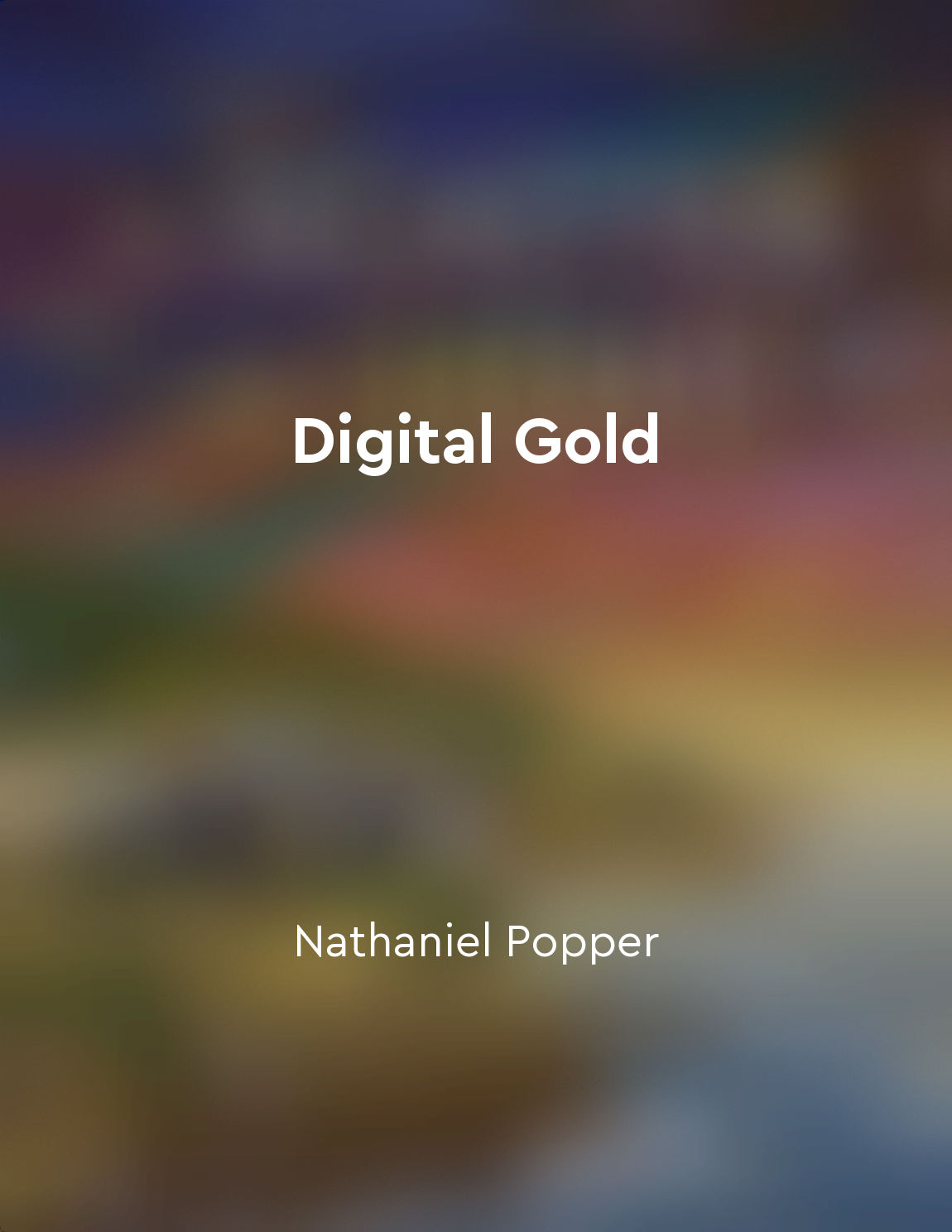Bitcoin's potential as global reserve currency from "summary" of Digital Gold by Nathaniel Popper
The idea that Bitcoin could become a global reserve currency has captured the imagination of many in the world of finance and technology. The concept of a reserve currency is not new - throughout history, different currencies have held this coveted position, with the US dollar currently occupying the top spot. However, proponents of Bitcoin believe that this digital currency has the potential to surpass traditional fiat currencies and become the world's primary store of value. One of the key arguments in favor of Bitcoin as a global reserve currency is its decentralized nature. Unlike traditional currencies that are controlled by governments and central banks, Bitcoin operates on a peer-to-peer network that is not subject to the whims of any single entity. This decentralization is seen as a safeguard against inflation and manipulation, which are common concerns with fiat currencies. Another factor that lends credence to the idea of Bitcoin as a reserve currency is its limited supply. The total number of Bitcoins that can ever be created is capped at 21 million, which stands in stark contrast to the endless printing of money by central banks. This scarcity is seen as a desirable trait for a reserve currency, as it ensures that the value of Bitcoin will not be eroded over time. Furthermore, the borderless nature of Bitcoin makes it an attractive option for a global reserve currency. Transactions can be conducted quickly and cheaply across international borders, without the need for intermediaries such as banks or payment processors. This could potentially streamline global trade and finance, leading to greater efficiency and lower costs. Despite these compelling arguments, there are also significant challenges that Bitcoin would need to overcome in order to become a global reserve currency. Volatility is a major concern, as the price of Bitcoin has been known to fluctuate wildly in short periods of time. This makes it difficult for businesses and individuals to use Bitcoin as a stable store of value. Regulatory hurdles also pose a significant barrier to Bitcoin's adoption as a global reserve currency. Governments around the world have taken varying approaches to regulating Bitcoin, with some embracing it as a legitimate form of payment and investment, while others have banned or restricted its use. This lack of uniformity in regulation could hinder Bitcoin's widespread acceptance.- While the concept of Bitcoin as a global reserve currency is an intriguing possibility, it is not without its challenges. The decentralized nature, limited supply, and borderless capabilities of Bitcoin make it an attractive candidate for this role, but volatility and regulatory concerns must be addressed for this vision to become a reality. Only time will tell if Bitcoin


